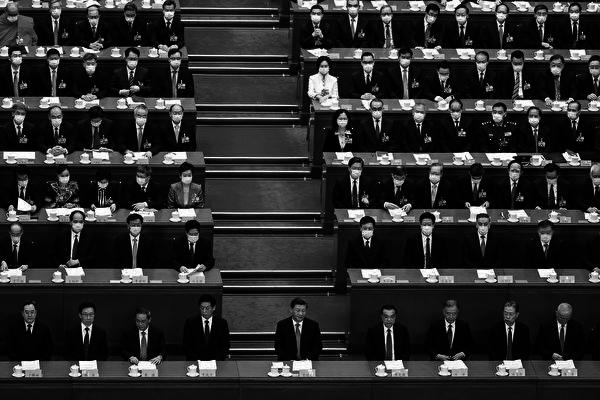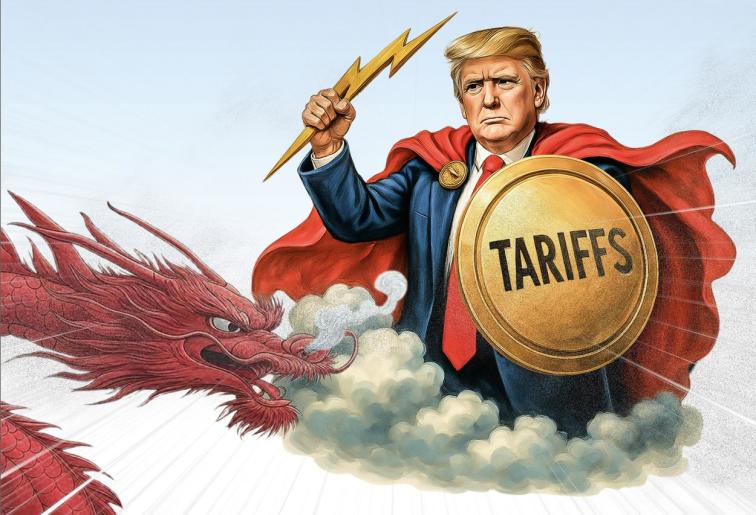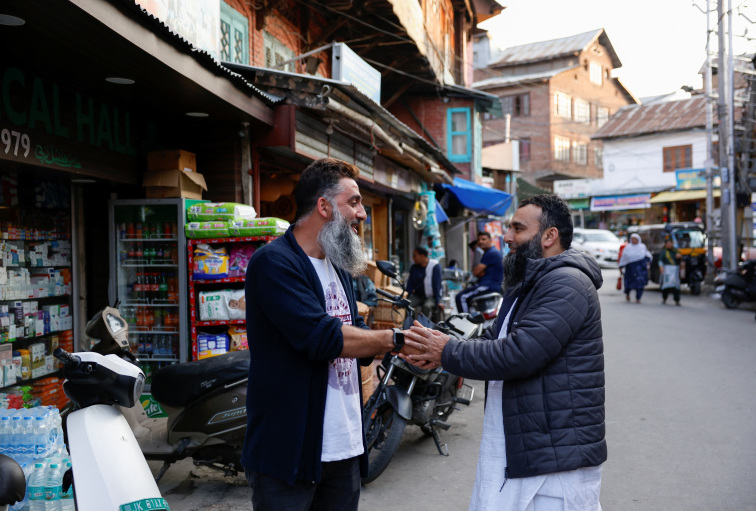On May 15, 2025, former CCTV reporter Chai Jing's book "Seeing," published in 2013, was taken off the shelves. (Internet screenshot)
[People News] According to a report from the People's Daily, Chai Jing, a former reporter and host for the CCP's official media outlet CCTV, received a sudden notice that her book "Seeing" was to be removed from publication due to "quality issues." Now a self-media figure overseas, Chai Jing discusses many "taboo" topics about China (the CCP) on her YouTube channel, with her latest episode focusing on interviews with Taiwanese veterans regarding the Chinese Civil War. Consequently, some Chinese netizens believe that "the book is not the problem; it is the people who have become sensitive."
As reported by Radio Free Asia, "Seeing," published in 2013, recounts Chai Jing's ten-year journey at CCTV and reflects the changes in Chinese society, quickly becoming a bestseller with over one million copies sold. However, it has not garnered much attention in recent years. Nevertheless, Beijing Beibeite Publishing Consulting Co., Ltd. issued a notice on Thursday (15th), stating that the book "Seeing" would cease publication and distribution due to "quality issues," and decided to remove it entirely and recall it, requesting platforms to stop sales immediately upon receiving the notice.
The publisher and author have completely severed ties for self-protection.
A reporter from the Central News Agency called the returns department of Beijing Beibeite to inquire about the notice. The representative stated that regardless of whether the book was shipped from their company, "Seeing" must be fully recalled and removed from shelves. Currently, "Seeing" can still be found on platforms like Dangdang and JD.com, but based on the prices and the stores selling it, most are second-hand books.
The book "Seeing" has not been reissued for many years and has now been officially announced to be taken down. According to the Hong Kong newspaper Ming Pao, sources familiar with the matter say this is a self-preservation strategy by the publisher to completely sever ties with the author, Chai Jing (柴靜), as she has recently touched on topics that the Beijing authorities do not favour on social media platforms. Some Chinese netizens have pointed out that while the removal of Chai Jing's old works may have limited impact, it serves as a warning from the authorities to her and other similar overseas media figures.
Cai Shenkun: Signifying Political Labelling of Chai Jing
Current affairs commentator Cai Shenkun (蔡慎坤) posted on social media, stating that Chai Jing has been very cautious in her self-media programs, trying to avoid provoking the Chinese Communist Party (CCP) or crossing the bottom line set by the Publicity Department. For self-media figures, self-imposed restrictions and self-censorship can be very painful, especially after experiencing the freedom of air outside the oppressive party-state system, making them less sensitive to the CCP's bottom line. Nevertheless, Chai Jing has still faced punishment; the removal of her books signifies a political labelling of her. "Perhaps this is a good thing, forcing Chai Jing to abandon her fantasies and focus on managing her self-media well, without self-binding—speak freely!"
At 49 years old, Chai Jing began working at China Central Television (CCTV) at the age of 25, serving as a program host and reporter. In 2003, she reported extensively on the Severe Acute Respiratory Syndrome (SARS) outbreak, earning the title of Annual Influential Journalist from the Southern Metropolis Daily.
Chai Jing has won the approval of many viewers with her caring perspective and sharp questioning, earning her the title of "Public Intellectual Goddess." However, she later faced criticism after it was revealed that she gave birth in the United States, with some accusing her of being "fake patriotic."
Discussion on the censorship of a documentary about air pollution in China.
In 2014, Chai Jing (柴靜) departed from CCTV, and the following February, she released a self-funded investigative documentary titled "Under the Dome" online. The film, which uses her daughter's tumour as a narrative entry point, delves into the issue of air pollution in China. It sparked significant public interest, amassing over 200 million views within just 48 hours of its release, but was quickly banned, leading to Chai Jing's disappearance from the public eye.
In April 2015, she was named one of Time magazine's 100 Most Influential People.
In 2017, Chai Jing relocated to Spain with her family. However, a month later, a terrorist attack occurred in her neighbourhood, prompting her to conduct follow-up reporting. In 2023, she launched a six-part documentary series titled "Strangers - Conversations with Jihadists" on her personal YouTube channel. The trailer gained rapid traction on Chinese social media but was soon blocked.
Chai Jing's programs address topics that are considered "unspeakable" in China (the People's Republic of China), including interviews with Su Xiaokang (蘇曉康), the author of "The River Elegy," dialogues with Li Nan Yang (李南央), the daughter of Mao Zedong's secretary Li Rui (李銳), and discussions on the rule of law with retired Peking University professor He Weifang (賀衛方). Recently, she has interviewed Chinese and Taiwanese individuals involved in the conflicts in Russia and Ukraine, and amid rising tensions in the Taiwan Strait, she spoke with Taiwanese veteran Gao Binghan (高秉涵) about the harsh realities of the Chinese Civil War.











News magazine bootstrap themes!
I like this themes, fast loading and look profesional
Thank you Carlos!
You're welcome!
Please support me with give positive rating!
Yes Sure!